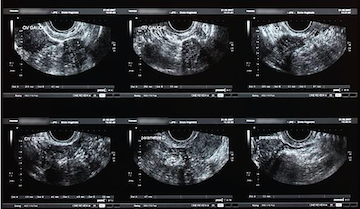Le diagnostic prénatal et les droits des personnes handicapées : plus ça change, plus c'est la même chose ?
Focusing on screening for Down's syndrome (DS), I consider the disability rights critique of prenatal screening in the context of different communities, disability advocacy/support groups and informed choice. In many countries, DS has been viewed for most of its history as a public health problem, with prenatal screening aimed at reducing its incidence. Statistics show that 60-90% of pregnancies are terminated if the fetus has been diagnosed with DS. This has been criticized by disability advocates asking why are these tests offered without complete and balanced information, for example concerning social welfare information regarding state support and about life with DS from the perspective of support organizations. Such criticism has already been voiced along the years regarding a variety of prenatal diagnosis methods, from amniocentesis to serum screening to NIPT. In 2016, UK Down's syndrome advocates have launched a new campaign, Don't Screen Us Out, after the UK National Screening Council released its decision to recommend the implementation of NIPT.
Such criticism is not universal but rather depends on a Western-liberal discourse. In Israel, there has been no such public debate; disability advocates express support of preventive genetic testing during pregnancy, alongside support of the care of disabled persons after birth. Nevertheless, the repeated manifestations of this criticism should alert us to the surrounding social context concerning how society supports and/or discriminates against disability, and how knowledge and perceptions of this social context affects parental decisions about prenatal diagnosis. Separating these contexts is a taken-for-granted norm – e.g., the separation of medical and social panels in conferences, or the separation between the medical information (that dominates genetic counseling) and social welfare information regarding disability. I use these observations to draw attention to the three genomes involved in counseling for prenatal diagnosis – the actual, biological DNA; the genome as I know it; and the social genome.
Biography
Aviad E. Raz is full Professor at the Dept. of Sociology and Anthropology, Ben-Gurion University, Israel, where he is Chair of the M.A. Program. He was a visiting Professor at the Dept. of Sociology, University of California, San Diego, and a visiting scholar at SciencesPo and the University of Leuven. Raz has written 8 books and over 55 articles and chapters on topics in organizational and medical sociology and anthropology. His recent books include “Comparative Empirical Bioethics: Dilemmas of Genetic Testing and Euthanasia in Israel and Germany” (2016, with Silke Schicktanz) and “Cousin marriages: between tradition, genetic risk and cultural change” (2015, with Alison Shaw). His current research projects focus on newborn screening (BSF Foundation), NIPT (DFG), and collective representation in patient organizations (Volkswagen Foundation).
- Présentation

 PDF version
PDF version

